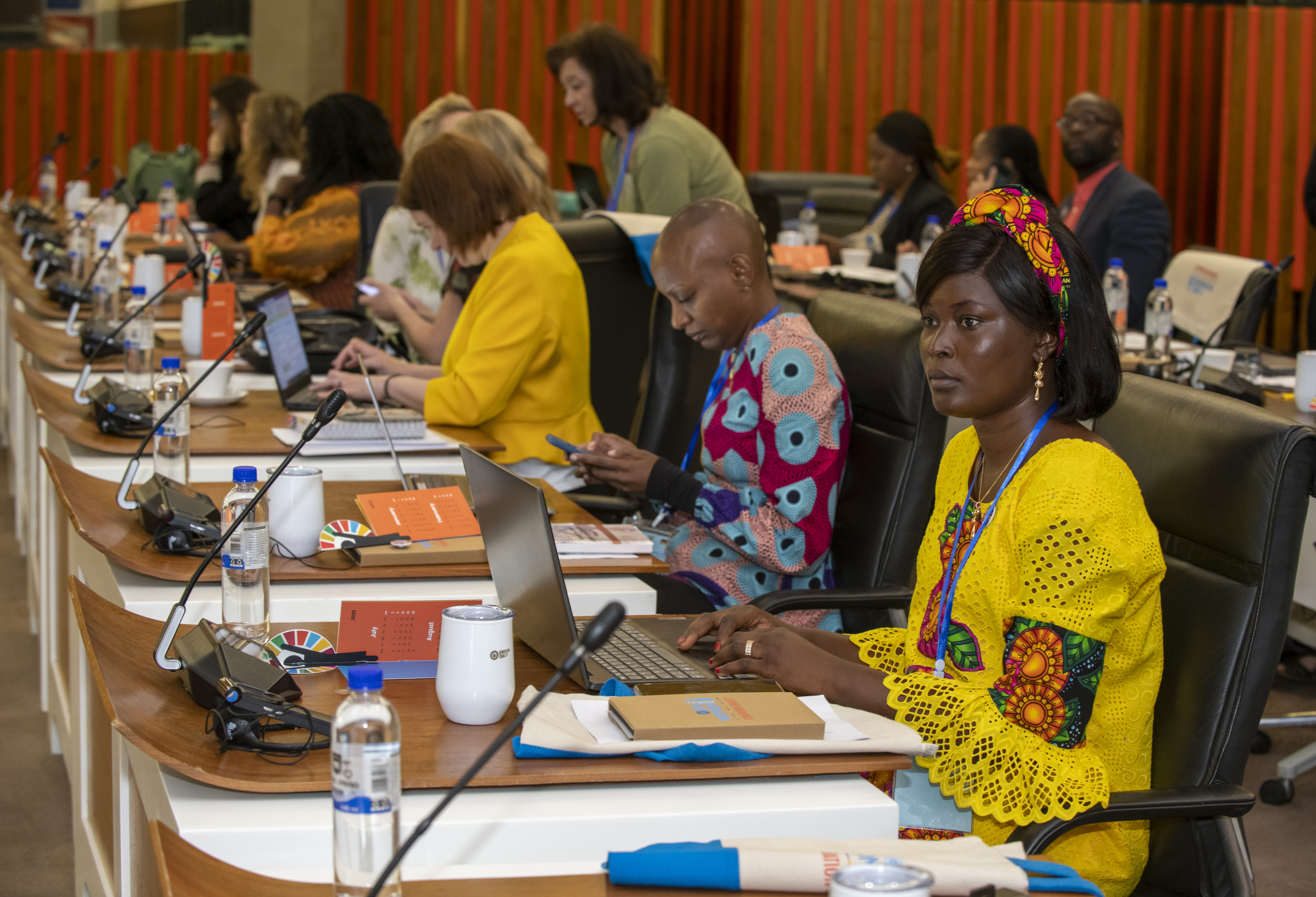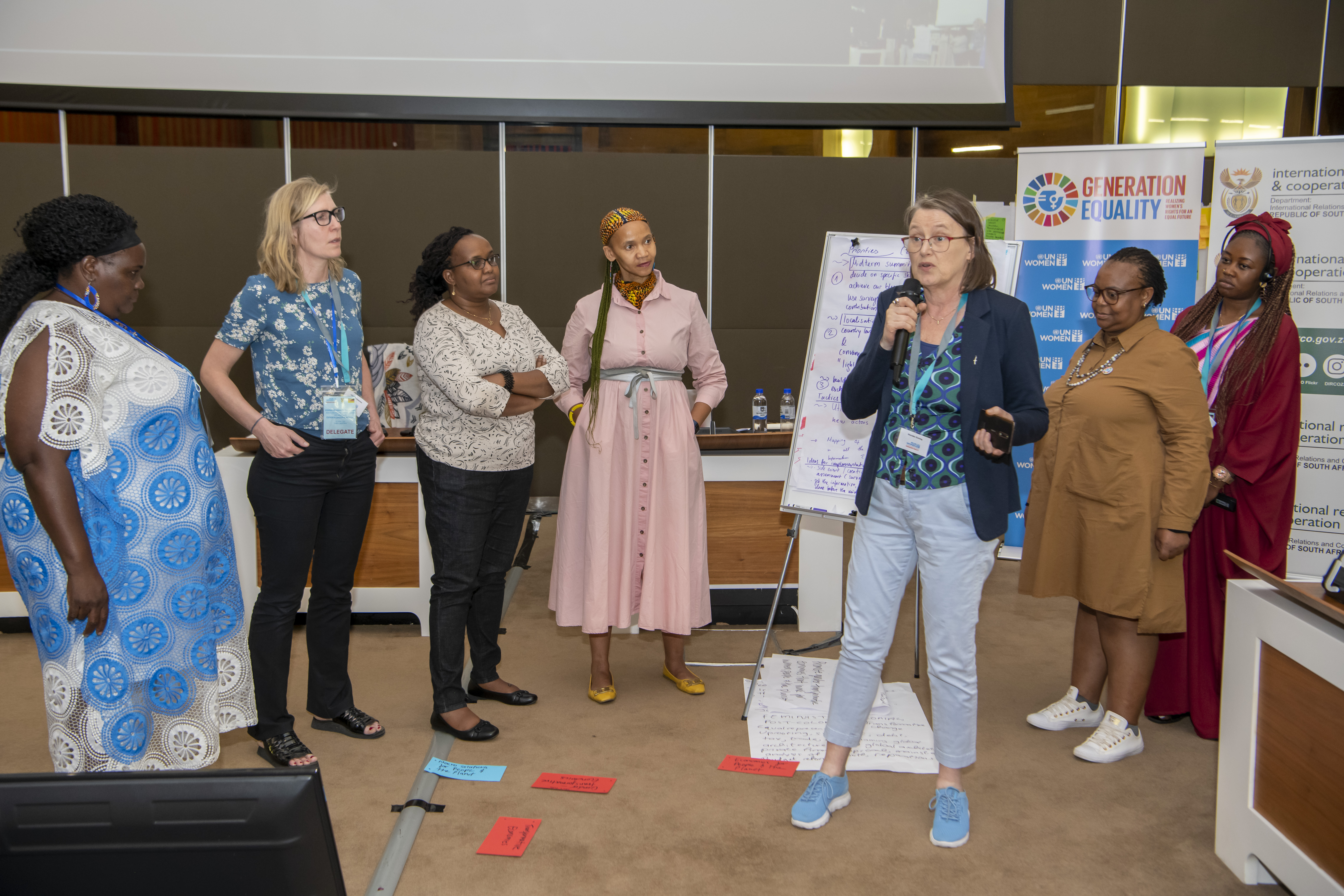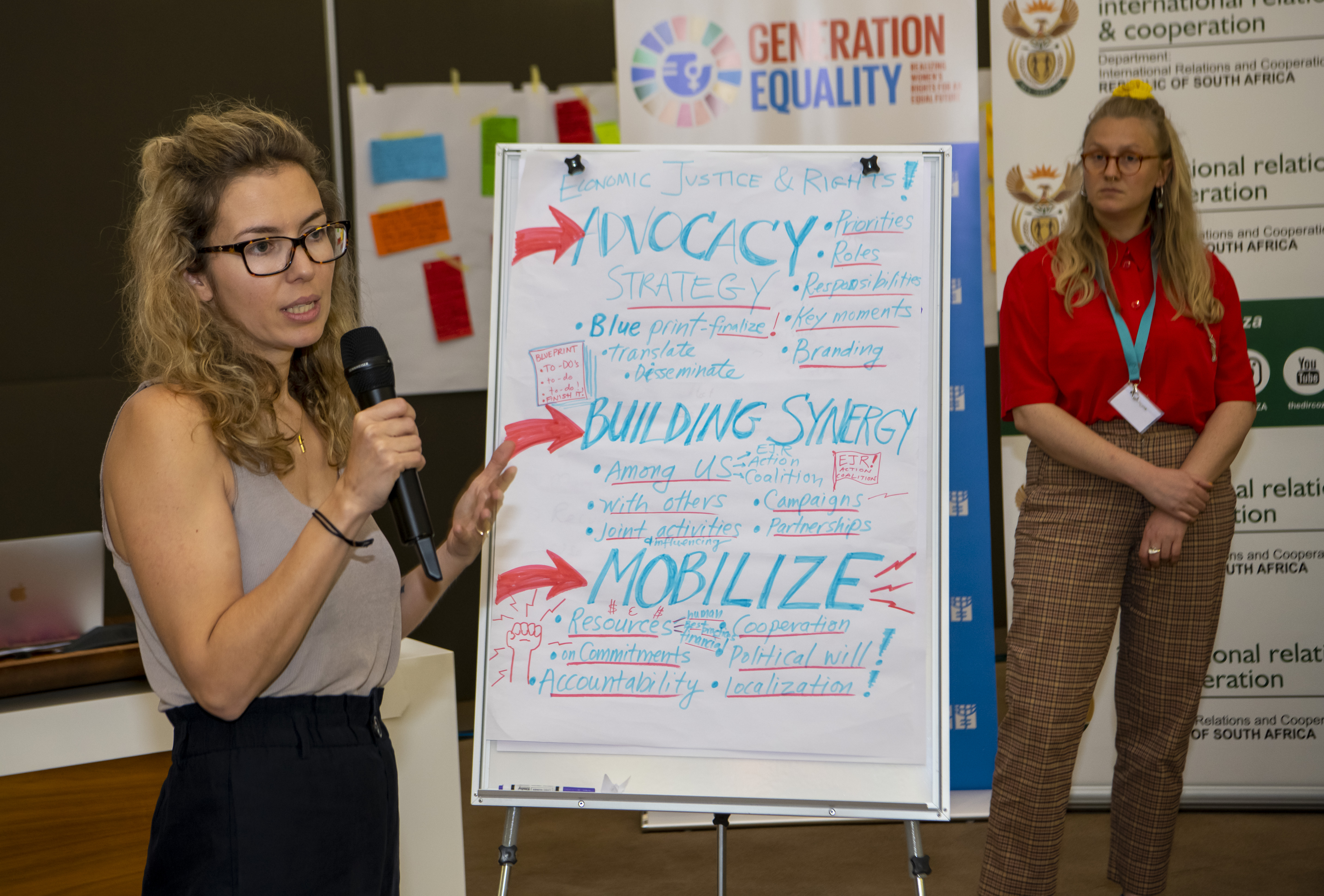
UN Women and the South African government co-hosted the Economic Justice and Rights (EJR) Action Coalition Leaders Retreat from 3 to 5 May 2023, in Pretoria, South Africa. The EJR Action Coalition is one of six Action Coalitions under Generation Equality meant to accelerate gender equality over a five-year timeline. The gathering brought together the 17 entities of the leadership structure of the EJR Action Coalition and was the first in-person meeting since the Generation Equality Forum in Mexico and Paris in June/July 2021.
The Action Coalition is unique in bringing together a collective of stakeholders from across the globe. In attendance at the Retreat were representatives from the Tanzanian, Mexican, German, Swedish, Spanish and South African governments, respectively. Civil society was represented by CARE International, FEMNET, the International Trade Union Confederation (ITUC), Huairou Commission, and the Women's Working Group on Financing for Development. There was also youth representation from Amis Cameroun and Anyar from Panama. The Bill and Melinda Gates Foundation represented philanthropy and United Nations agencies representative came from UN Women, ILO and UNCDF.

Aleta Miller, Representative of UN Women South Africa Multi-Country Office (SAMCO), outlined the Action Coalition’s journey and the importance of multi-stakeholder action in achieving change for women and girls. She commended the role of the South African government for their commitments to the Action Coalition, in localizing Generation Equality and hosting the retreat. “The aftermath of the COVID-19 pandemic has significantly disrupted actions geared towards tackling existing gender inequalities. Previous experiences and past pandemics have taught us that women and girls experience national and global crises disproportionately. The current socio-economic climate poses unique challenges for the women and girls’ movement, and there exists significant disparities in social investment in our communities.” she said.
In his opening remarks, Department of International Relations and Cooperation’s (DIRCO) Acting Deputy Director-General, Zaheer Laher reiterated that gender equality remains a central tenant for South Africa’s development and underscored the importance of platforms such as Generation Equality as a pathway towards realizing gender equality and achieving the sustainable development goals (SDG).

During the three-day retreat, leaders of the EJR Action Coalition engaged in mutual learning, strengthened relationships, and created a forward-looking pathway for key workstreams of the EJR Action Coalition. The leaders also had the opportunity to make substantive contributions to the discussions on the second phase of Generation Equality: developing and implementing localisation strategies. From the engagements, it was evident that for the localisation process to be effective, concerted efforts must be made towards identifying and allocating dedicated resources to further strengthen capacities and structures to effectually anchor and lead on Generation Equality at the local level.
The South African government shared its case study on EJR implementation: The Women Economic Assembly (WECONA) as a model for localization. As part of it’s commitments, the government has used WECONA to transform the value chain ecosystems and create clear pathways for women-owned businesses to participate within the mainstream economy.

Additionally, the government is also promoting a programme of 40% preferential procurement in the public sector towards women-owned businesses domestically and is advocating for the adoption of a 30% public preferential procurement globally to increase the number of women entrepreneurs; while contributing to the sustainability of women-owned businesses. Some of the progress indicators highlighted included the establishment of the intergovernmental task team which includes multiple government departments for the implementation of the Generation Equality strategy at the government level; political will from the country’s president around Generation Equality; and the engagement of stakeholders across other action coalition such as the action coalition on GBV.
Namhla Mniki-Mangaliso, a senior executive from the private office of the President of South Africa, highlighted that “the commitment maker model applied at national level is very effective and necessary, not only for the pronouncement of commitments, but also for setting gender transformation targets, co-creating solutions and developing models for implementation, and establishing a functional operating framework for gender transformation.” These sentiments further illustrated the South African government’s thought leadership on the African continent, using its voice and influence, to articulate strong support for the jointly developed Global Acceleration Plan to support women’s economic justice and rights.
Learn more about the Economic Justice and Rights Action Coalition blueprint here.
